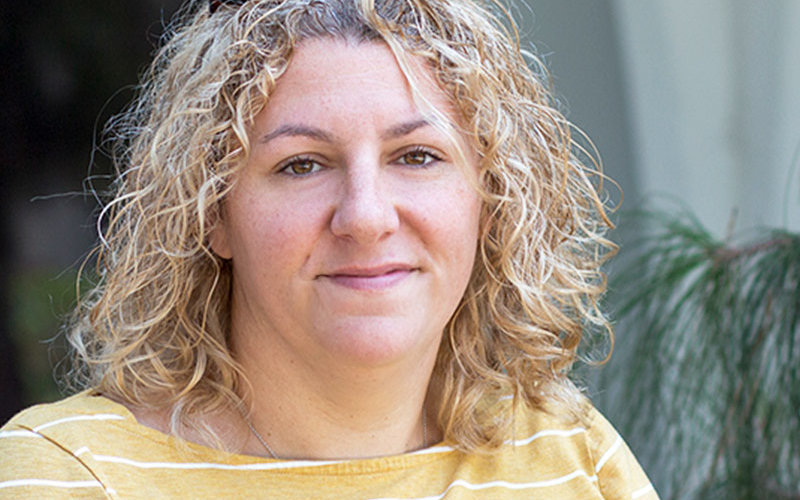
Committed to deepening students’ understanding of criminal justice complexities, Alissa Ackerman joins Cal State Fullerton’s Division of Politics, Administration and Justice this fall. The new assistant professor will teach courses on “Research Methods” and the “Foundations of Criminal Justice.”
Ackerman received her doctorate in criminal justice from the City University of New York and previously taught at the University of Washington, Tacoma and the University of California, Merced.
Much of her research is focused on sexual violence, which she approaches through the lens of a survivor. “I believe that every single person who experiences sexual violence or victimization has the capacity to heal, to survive and to thrive,” says Ackerman. “What that looks like for me is staying in this career, continuing on as a professor and a researcher and a teacher, while being open about that label.”
What inspired you to go into the field of criminal justice?
I was always interested in why people do bad things to other people. It took me a while to find criminal justice, but once I did, I was hooked!
What are your research interests?
I study sexual violence, why people act out in sexually violent ways, how people deal with sexual trauma, and the policies we use to manage people in the community who have sexually offended.
What do you hope students will learn from your classes?
I want students to understand that criminal justice is far more complex than what we often think. It is a nuanced field and requires critical thinking. I want students to be thinking about course material long after they leave my courses, because they hold the key to transforming the system.
What would you like the general public to know about your research areas?
Sexual violence is far more pervasive than we recognize as a society. Most people never speak out about these types of experiences. It is really important that we understand that most sex crimes are committed by someone known to the victim and that most people who commit these offenses are not monsters. My goal is to help the general public understand that policies that seek to punish individuals who sexually offend do nothing to reduce sexual violence. These policies make us “feel safer,” but haven’t measured up in any real evidence-based way.